I’m currently supervising a Master’s Thesis for an IT student. What we are trying to do is to extract “quality” keywords from unstructured text in natural English language.
Details to follow…
Student: Chit Khine (MSIT student)

I’m currently supervising a Master’s Thesis for an IT student. What we are trying to do is to extract “quality” keywords from unstructured text in natural English language.
Details to follow…
Student: Chit Khine (MSIT student)
This project starts when our lab (Intelligent Systems Research Laboratory or ISL) received a Google Tango device to play with. Big thanks to VR1, our sponsor who obtained the device for us. The idea of this work is to explore what kinds of APIs Google Tango supports and what we can do with this technology.
It later became a topic for the senior project called “Virtual Cafe”. This research aims to study and to implement an application of Tango Project by Google with Lenovo Phab 2 Pro device. We focus on creating 3D Object Recognition into the device by creating an augmented reality application that can recognize the indoor environment and objects in the real world and render the area and recognized objects in the virtual world.
The objectives of the study include:
The tools used in this study are:
The result of the study was as follows:
The picture below shows corresponding point clouds (left) of the real environment (right).
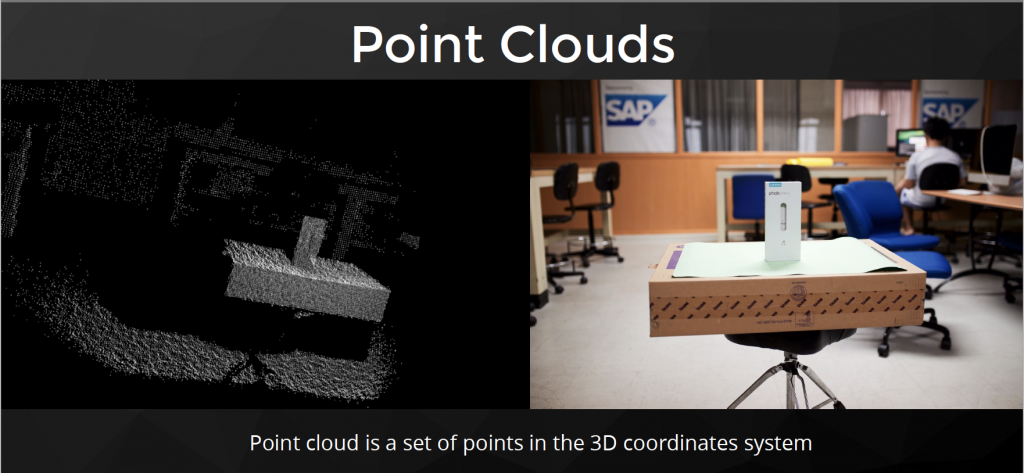
Examples of point clouds of the same object captured from different distances.
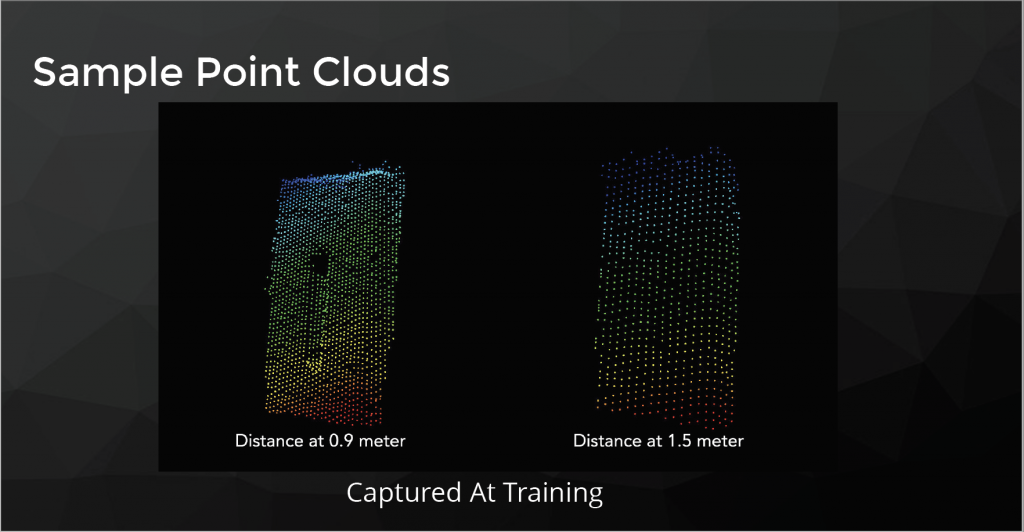
Here is a video clip demonstrating our work.
Challenges
Deliverables
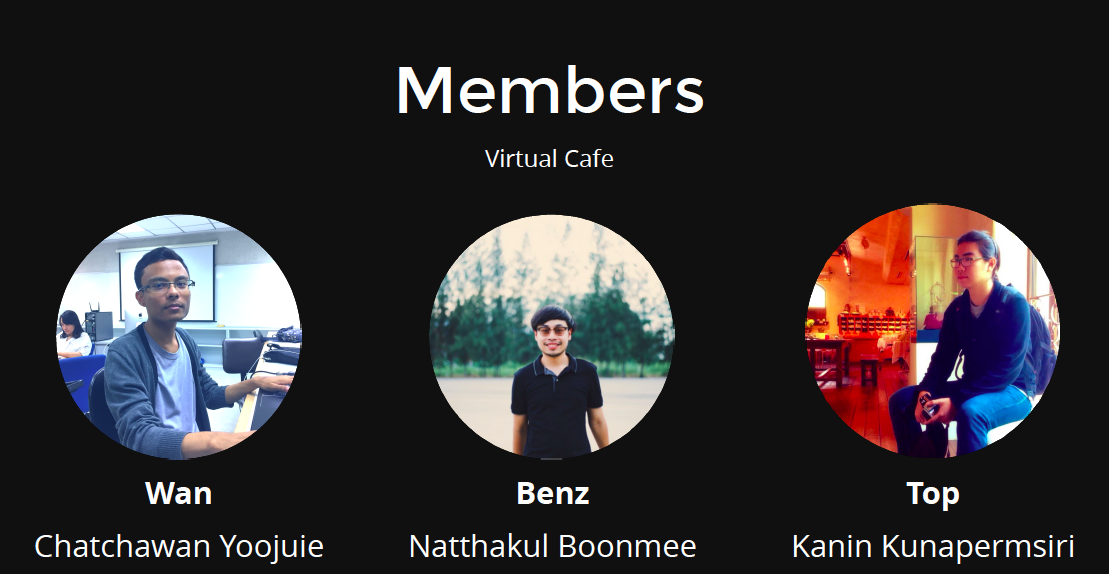
This is one of the senior project that I advised in Semester 2/2016.
The goal of this project is to develop a system that can analyze comments or reviews, particularly on Thai restaurants, extracted from sources such as Facebook and/or Wongnai. We are trying to classify the reviews into 3 classes i.e., positive, neutral and negative.
Objectives of this work are as follows:
As you can see in the following screen shots, the ratio of positive, neutral and negative reviews as analyzed by the system is shown along with the reviews that are classified into each class.
Analysis Results on Restaurant 1
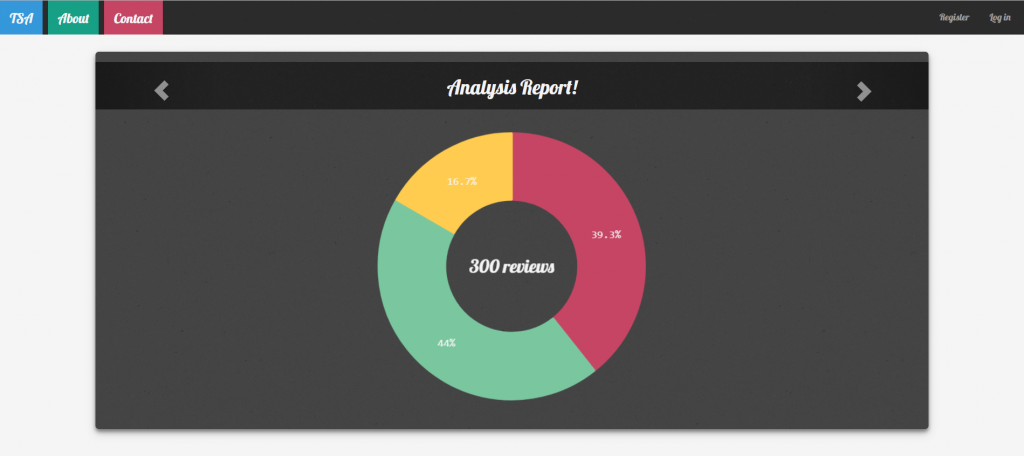
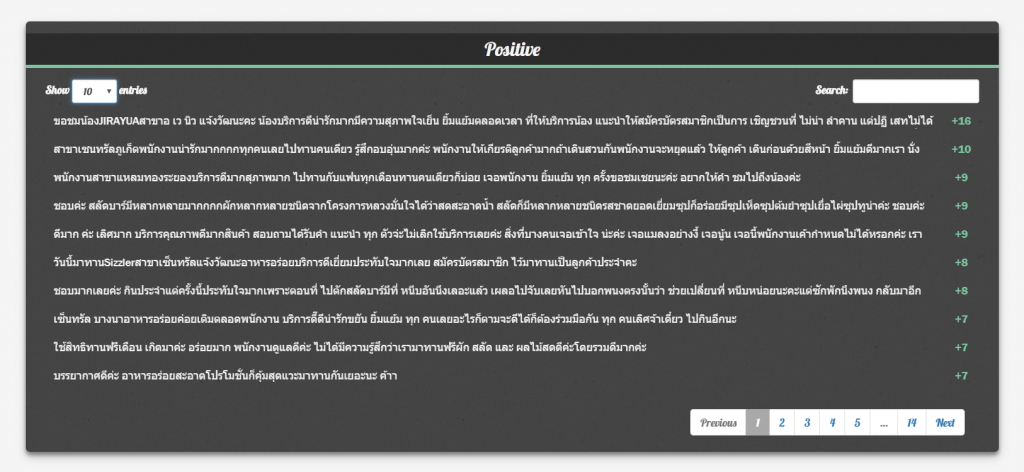
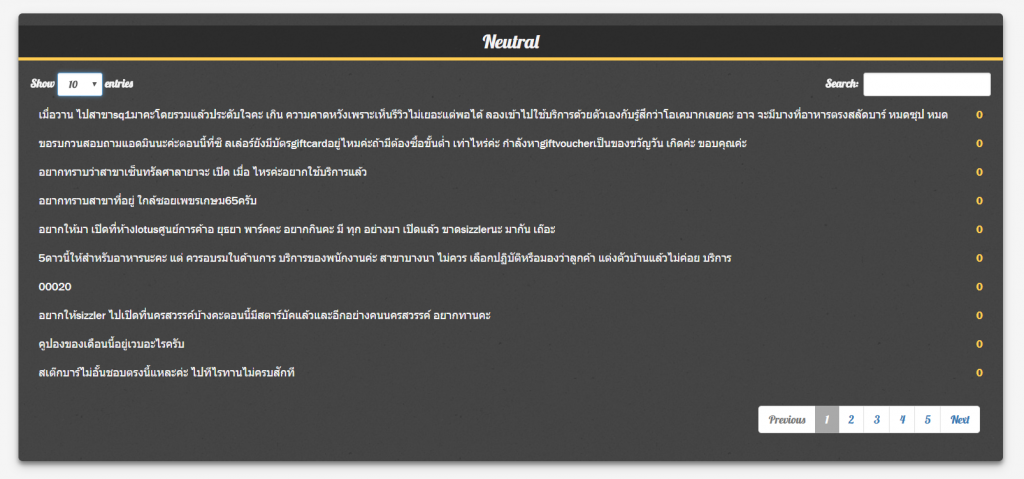
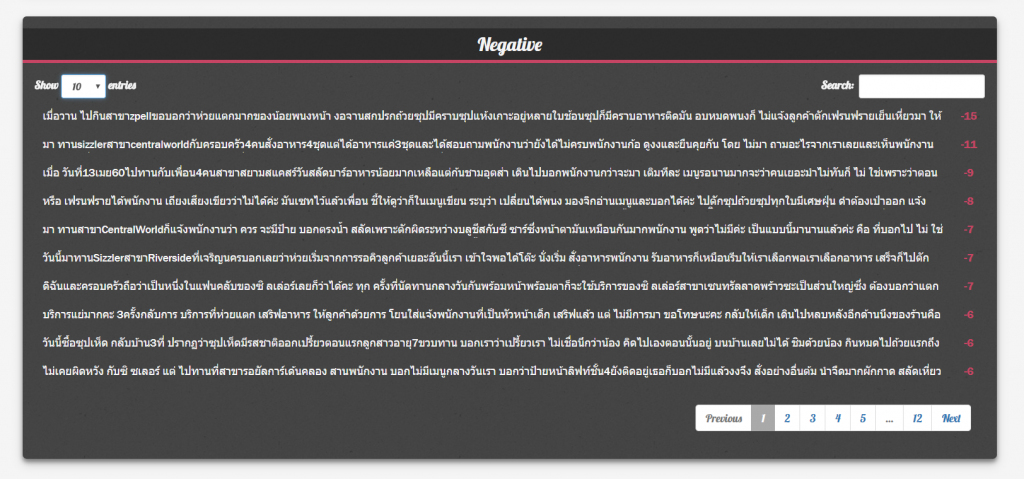
Analysis Results on Restaurant 2
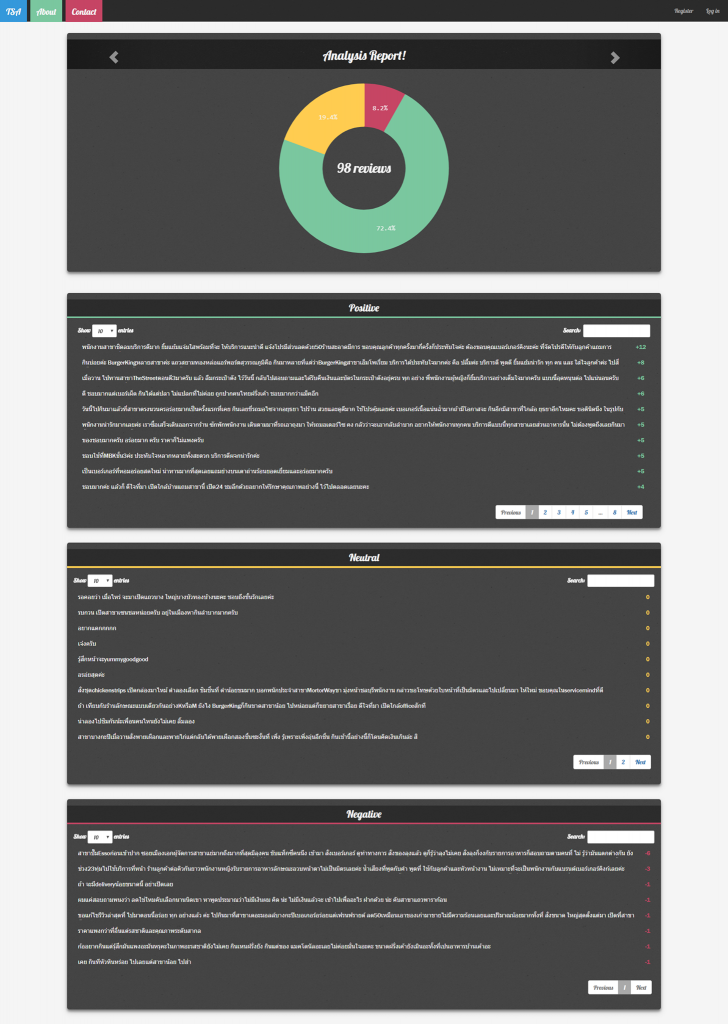
In the restaurant domain, there are several aspects that customers normally comment on such as cleanliness, the taste of the food, the restaurant’s atmosphere, service, and price. We also attempt to extract how customers view the restaurant from such aspects. There are still rooms for improvement on this detailed analysis.
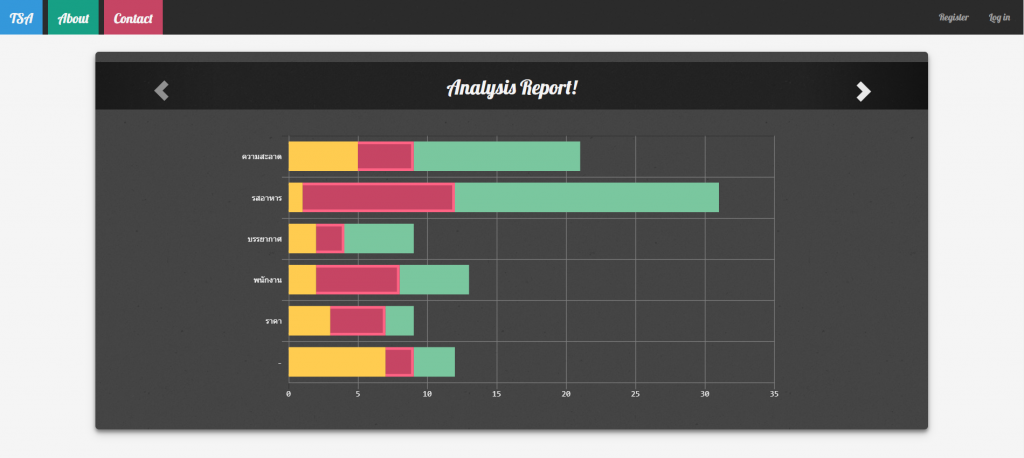
Challenges and Discussion
Deliverables
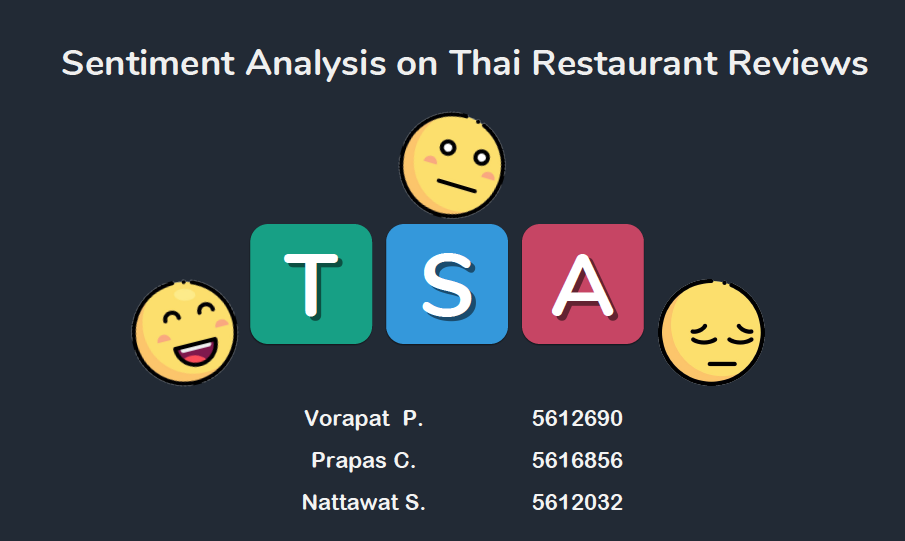
I teach this course for the first time in Semester 2/2016.
For the term project, students are asked to write a test plan, test specification, perform an automated testing and summarize their test results in the test report for AU SPARK application (our in-house application that allows AU students to plan their schedule, register courses and view academic records). AU SPARK is available on iOS, Android and as a web application. Since it is a 15-week course, I only assigned students to test the Android version of AU SPARK.
Students are divided in teams of two and we ended up having 6 teams.
CS1201 Computer Programming II
CS3417 / SC4437 Software Verification and Validation
SC6210 Principles of Theory of Computation
Term report
This course aims to teach how to design and implement applications using Object-Oriented Concepts. Students are allowed to pick any topic of their interests and they are required to implement the proposed projects using an Object-Oriented Program Language of their choices.
The term projects can be developing brand-new applications (with proper OO design) or modifying the design of existing applications (which could be projects that students may have completed in the past with no design or just badly designed) .
Three brand new projects are AU Admission, Guitar Helper, and EatWhatever. AU Spark Payment and Alumnet are applications that students have been working on before taking this class and they are required to modify and improve the design of their applications (through refactoring and applying appropriate OO design patterns).
Some works can’t be put here due to the large file sizes. Feel free to contact me if you need more information.
Term Project Presentations
CS3452 / SC3230 Theory of Computation
CS4402 / SC4370 Object-Oriented Concepts
SC6547 Directed Independent Study in Functional Languages
SC8324 Natural Language Processing
Hi all,
This site is intended to be the portal of the courses that I taught in the past and those that I am currently teaching. All senior projects and master’s thesis that I have supervised or am currently supervising will also be posted here as well.
I’ll be updating my site every semester.
Hope you enjoy.